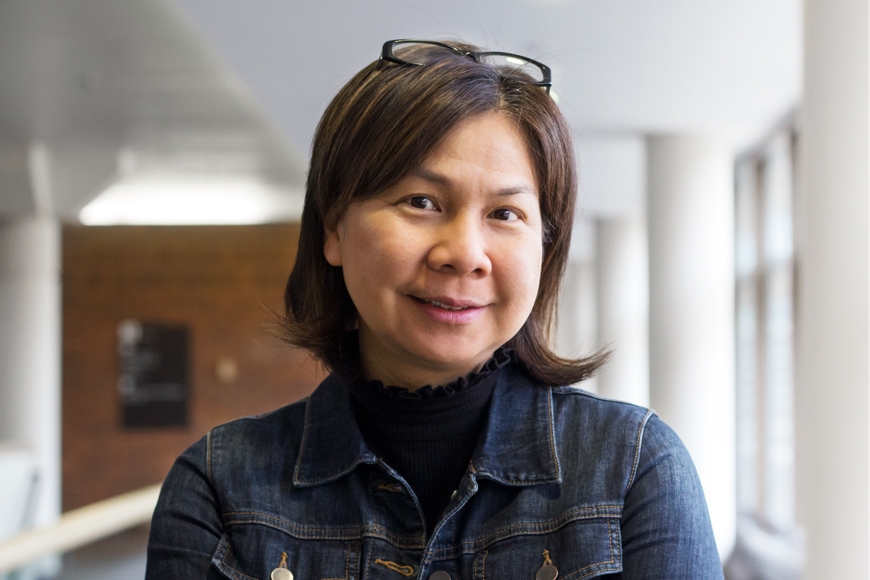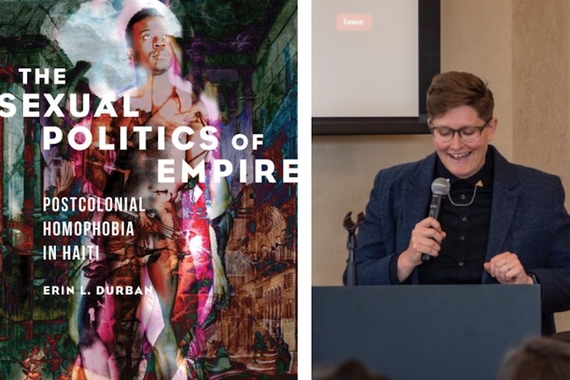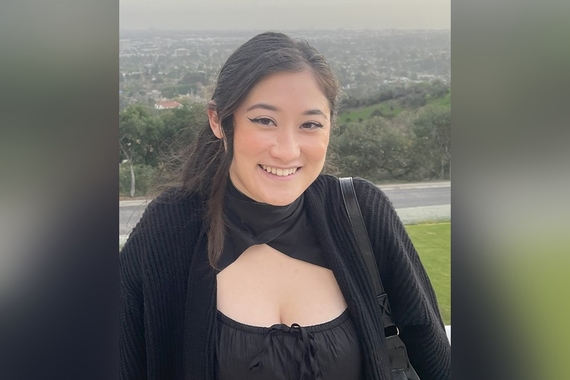New Ways to See the World
How does contemporary capitalism shape inequalities? How have corporations transformed in the past few decades? What anthropological tools are used to unpack social and economic hierarchies of power?
These are the questions that associate professor Karen Ho has aimed to answer through her anthropological research on finance and her work with the College of Liberal Arts’ Race, Indigeneity, Gender, and Sexuality Studies Initiative (RIGS). Ho was appointed director of the initiative in the fall of 2017, though she had been working with RIGS for some time before. “This set of intellectual formations [that RIGS works with] has long informed the work that I do,” says Ho.
Expanding on connections between her anthropological work and the insights within RIGS, Ho says, “[There are] a lot of intellectual and social synergies between anthropology and the study and critique of power, race, ethnic, and gender studies.”
Researching Corporate Inequality
Ho primarily researches the culture of finance, and more specifically, its relationship to heightened inequality. In the past 30 years, Ho has found that corporations have completely transformed, shedding their responsibilities to employees and communities and focusing wholly on stock value. Working for a corporation used to mean job security and retirement security—both of which have now been dismantled, says Ho.
“Corporations are so much more interested in boosting stock price according to the measures and standards of finance, not for these other constituencies that they used to be beholden to,” says Ho. When shareholder profits are the focus, it’s not surprising that employees, along with their benefits, have been downsized, she explains.
This singular focus on the shareholder has been a big factor in the nation’s increasing socioeconomic inequality, says Ho. For instance, 85 percent of the stock market value has gone to the wealthiest ten percent of the US population (and the top 20 percent of households own 90 percent of the privately-held wealth in the US). Even less surprising is that the networks of people who shape and control these corporations, which are often transformed into investment funds, are overwhelmingly from dominant social groups.
By using anthropology, which according to Ho has long studied the voices and experiences of marginalized people, these corridors of power can be analyzed. “[I’m] using the tools of anthropology to unpack and render the workings of the powerful,” says Ho.
What exactly is RIGS?
RIGS is an initiative that works to “take seriously the intellectual and epistemological insights that come out of the understanding and analyses of multiple kinds of marginality,” says Ho. In other words, it examines issues of race, indigeneity, gender, and sexuality, engaging students to develop a critical lens to look at the way uneven power influences our everyday lives.
RIGS mainly works with six key units in the College of Liberal Arts: African American & African Studies; American Indian Studies; Asian American Studies; American Studies; Chicano & Latino Studies; and Gender, Women & Sexuality Studies. These units have contributed immensely to the University in terms of critical scholarship, but they remain small. This is where RIGS comes in to spread the word about critical insights that stem from these departments.
“[The] RIGS initiative formed through work in these departments to amplify the work, the reach, the larger intellectual and social importance,” Ho says. These units have done a lot with a little, she explains, and their influence has been far wider than what their student and employee numbers show. They have transformed all disciplines, from sociology to political science, throughout the nation’s universities—a lot of these intellectual agendas came out of the social movements in the 1960s and 1970s, says Ho.
Ho used W.E.B. DuBois’ famous concept of “double consciousness”—the act of understanding not only one’s own self, but viewing oneself in the lens and structures of the dominant—to explain the multiple and nuanced lenses through which RIGS and these six units shape knowledge and question structures of power. Marginalized or not, everyone can develop a critical lens by which to question the standards we have been historically measured against.
Finding Common Ground
Since Ho began as director in the fall of 2017, RIGS has worked with departments all across CLA to address issues of power and race through events such as faculty roundtables, graduate workshops, and critical conversations. An example was a reception held for an award-winning book by Professor David Chang with a faculty roundtable involving professors from American Indian studies, history, anthropology, and Asian American studies to discuss critical indigenous perspectives on space and land.
“[We’re] bringing scholars together to show that these perspectives and histories are important to encourage new ways of seeing the world,” Ho says. Supporting the wonderful work of the Critical Disability Studies collaborative of scholars, RIGS also co-sponsored and co-planned a critical disability studies symposium this past semester on blackness, activism, and disability on April 12-13, 2018.
Further into the future, RIGS will be holding a panel to discuss reparations and what this would mean in terms of reparative justice and atonement for certain communities. A current example of a necessary redress is making sure that Native American students attend the University of Minnesota - Morris without charging tuition. Not only is the Morris campus built on native homelands, but the space of the University was formerly a boarding school that stripped students of their culture. Free tuition for Native American students showcases an example of reparation that was made and actually enacted, Ho says.
Through these events and support of curriculum that involves issues of inequality, RIGS makes the “social and intellectual case for these departments,” Ho says. As these issues affect us every day, it is more and more critical that we find common ground to solve major social problems.
This story was written by an undergraduate student in CLA.



